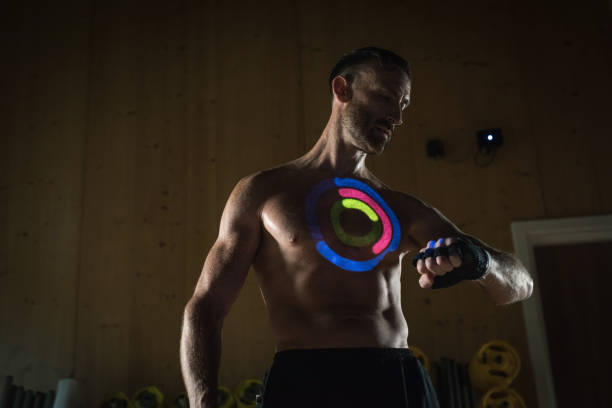Can an AI Fitness Coach Replace Your Gym Trainer?
Introduction
Fitness in 2025 isn’t just about lifting weights or running on a treadmill. The era of AI-powered coaching has arrived — and it’s here to stay.

But the big question is: Can digital fitness coaches actually replace human trainers? Or is a perfect blend of both the real key to fitness success?
Section 1: What is an AI Fitness Coach?
An AI fitness coach is a smart app or device that analyzes your body data like age, weight, BMI, sleep patterns, and nutrition to build a personalized training plan.

These AI systems guide you through every aspect of your health journey — from workouts and hydration to diet, sleep, and recovery. Unlike a traditional trainer, AI works non-stop, adjusting plans based on your daily performance and lifestyle.
Some even integrate with wearables to provide real-time feedback, track your steps, calories burned, and monitor your heart rate — all to ensure you’re moving in the right direction.
Section 2: Top AI Coaching Apps in 2025
Here are some leading apps and tools that are redefining the fitness landscape:
- Fitbod
A smart gym workout planner that uses AI to suggest exercises based on your past performance, muscle recovery status, and goals. - Cure.fit / Cult.fit (India)
These popular Indian fitness platforms now include AI features that personalize workouts and even offer guided meditations and nutrition tips. - Freeletics
Known for its virtual coaching capabilities, Freeletics designs custom bodyweight workouts that adapt as you progress. - Whoop / Fitbit / Apple Health
These wearables now offer AI-driven insights, including sleep quality analysis, recovery readiness, and exercise recommendations.
These tools offer not just tracking, but intelligent suggestions to help users perform better, avoid injuries, and stay motivated.
Section 3: What Makes AI Fitness Coaches Great?
AI-based coaching comes with several strong advantages:
- 24/7 Availability
Unlike human trainers, AI is always accessible — whether it’s 5 a.m. or midnight. - Data-Driven Customization
Your fitness plan is based on your actual body data, making it more personalized and effective. - Motivational Alerts & Gamification
Many apps use progress badges, streaks, and motivational messages to keep you engaged and on track. - Women-Focused Features
Some platforms offer fitness suggestions based on menstrual cycles, hormonal changes, and energy patterns specific to women.
AI ensures consistency and accuracy in tracking, something that’s difficult for humans to do all the time.
Section 4: Can AI Completely Replace Human Trainers?
Not yet — and maybe never entirely.
While AI can create precise workout plans and track your progress, it still lacks the human touch. Real-time form correction, emotional encouragement, and personalized motivation are areas where human trainers excel.
Imagine trying to improve your posture during a deadlift — a trainer can physically guide and correct you, something AI can’t do through a screen.
The best results often come from a hybrid model, where human expertise is enhanced by AI precision. Think of AI as your data analyst and your trainer as your motivator and guide.
Conclusion
AI fitness coaches in 2025 are a powerful innovation — making workouts smarter, more efficient, and accessible to everyone.
However, AI still can’t replace human understanding, intuition, and emotional connection. The most effective fitness journey combines the strengths of both.
So instead of choosing between a gym trainer or an AI coach — why not use both?
Let technology and humanity work hand-in-hand to unlock your fittest version ever.
How Intermittent Fasting Became the Most Popular Weight Loss Trend in 2025
